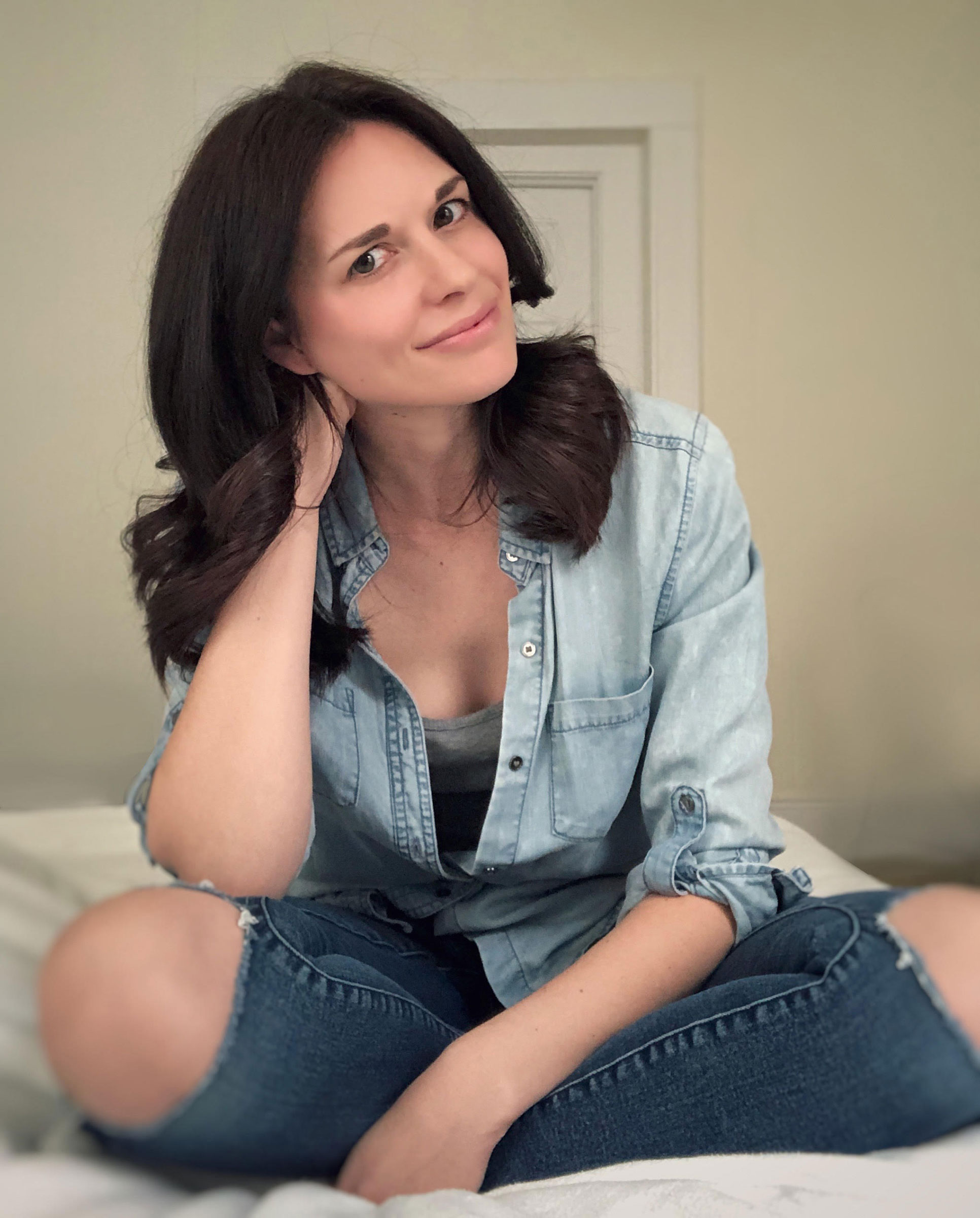
The first time I said it out loud was to my son. He’d been watching TV and a little cartoon girl was hiding from a little cartoon boy she had a crush on. He asked me, “Mom, when you were a teenager, were you boy-crazy?”
He was 6 years old, too young to understand romantic urges, or crushes, or the way that these feelings turn your body into a magnet that’s constantly switching poles: attract, repel, attract, repel. A dozen different answers flew through my brain, but the one that emerged from my lips was the simple truth: “Actually, when I was a teenager, I liked boys and girls.”
“Oh,” he said.
My son went back to watching his show, but I was struck by the enormity of what I’d just done. Had I just come out as bisexual, at age 36 and for the first time in my life, to my first-grader?
Read More: What to Know About the Bisexuality Pride Flag
Perhaps it was my Catholic upbringing that kept me from speaking the truth about my sexuality for so long. Or perhaps it was just the “straight-by-default” assumption we put on kids that made me eager to grow into the space that had been cleared for me. It could have been my Midwestern instincts to settle into the path of least resistance that made me round myself down to heterosexual: “Ope! Let me not bother you with my complicated sexuality! I’ll just sit over here with the straight people! Please don’t worry about me!” Whatever the cause, I kept quiet, even as I started to notice that my crushes were aimed at girls almost as often as boys.
I know my journey is common to a lot of bisexual people who are involved with someone of the opposite sex. We often feel erased by our choice of romantic partners. We worry we aren’t queer enough to call ourselves queer. We worry about taking up space in a marginalized community when we have the privilege of passing for straight. And we ask ourselves, over and over again, if I’m in a long-term relationship with an opposite-sex partner, does the fact that I’m bisexual even really matter?
But when I answered my son’s question, I didn’t have to worry about any of that. There was no judgment, no argument, no need to justify the person that I knew myself to be. See, the thing about kids is that they don’t arrive with the shame built in. If you want them to feel shame, you have to teach it to them first. Otherwise, they mostly view the world as a series of neutral facts, all of which carry roughly the same weight: I have two sisters; I was born in Ohio; I like boys and girls.
Read More: I Know What It’s Like to Be a Florida Teen Who Can’t Say Gay. I Was One
I think about that day every time I read a story about a governor signing a “don’t say gay” bill into law, or a state legislature seeking to prohibit Pride flags in schools, or a library banning children’s books with LGBTQ+ characters. When we create silence around something, we send kids a message that this thing is shameful, that it should be hidden or ignored. And that if they feel any of it inside themselves, they shouldn’t speak about it. Ever.
There are important societal reasons we shouldn’t shy away from these conversations, shouldn’t perpetuate the stigma, but in that moment I just didn’t want to lie to my son. So I didn’t. I told him the truth. The close bond I have with my children is the most important thing in my life, and I want them to know who I truly am.
My son’s nonchalant response to my coming out was one of the greatest gifts I’ve ever received. He heard me with complete openness and without any assumptions about who he thought I should be. Saying it out loud to him opened the door for me to talk more openly about my sexuality. Not everyone has the privilege to be able to share who they are, but those of us who do can use our visibility to create space for others to do the same.
I hope my honesty will prove to be a gift to my son as well. The mystery of who he will be is still unfolding. But whatever person is revealed by time and growth, I hope he knows he can trust me with his truth in return.
More Must-Reads from TIME
- Cybersecurity Experts Are Sounding the Alarm on DOGE
- Meet the 2025 Women of the Year
- The Harsh Truth About Disability Inclusion
- Why Do More Young Adults Have Cancer?
- Colman Domingo Leads With Radical Love
- How to Get Better at Doing Things Alone
- Michelle Zauner Stares Down the Darkness
Contact us at letters@time.com